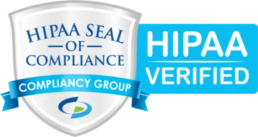National High Potassium Day is observed on May 1st every year to bring greater awareness about the condition. This day aims to raise awareness about hyperkalemia, a medical condition where the potassium levels in the blood are too high, and its potential impact on patients with Chronic Kidney Disease (CKD) and End-Stage Kidney Disease (ESKD).
Potassium is an essential mineral that plays a critical role in various bodily functions, such as regulating heart rhythms, muscle contractions, and nerve impulses. However, when the levels of potassium in the blood become too high, it can cause serious health problems, including cardiac arrest and even death.
For CKD and ESKD patients, managing potassium levels is a crucial part of their treatment plan. The kidneys are responsible for filtering excess potassium from the body. However, when the kidneys are not functioning correctly, potassium can accumulate in the blood, leading to hyperkalemia. This condition can be life-threatening for patients with CKD or ESKD, as their kidneys are already compromised, and their bodies may not be able to handle high levels of potassium.
Hyperkalemia can also be caused by certain medications, such as angiotensin-converting enzyme (ACE) inhibitors and angiotensin receptor blockers (ARBs), which are commonly used to treat hypertension in CKD and ESKD patients. It is essential for these patients to work closely with their healthcare providers to manage their medication regimen and monitor their potassium levels regularly.
Symptoms of hyperkalemia may not be noticeable until potassium levels reach dangerously high levels. Some of the symptoms may include muscle weakness or tingling sensations, nausea, and irregular heartbeat. If left untreated, hyperkalemia can lead to cardiac arrest and even death.
Potassium is typically only monitored via a blood draw which usually occurs just once or twice per month. As a result many patients are left wondering whether they’re effectively managing their potassium levels through their diet choices. Alio created a non-invasive wearable device, the SmartPatch, to help monitor key metrics like potassium. Alio recognizes much of an ESKD patient’s life is consumed with dialysis treatment, doctor’s visits, and generally managing their condition. Alio believes in providing greater insights to clinical care teams which allows them, and the patient, to more effectively manage their condition. By wearing the SmartPatch patients can rest assured their condition is being monitored through regular painless readings via the SmartPatch. The result? Patients and physicians have an opportunity to be more proactive instead of reactive. Greater insights, greater peace of mind, better outcomes, all at a lower cost.
Part of spreading awareness is understanding all of the options available and how innovation is shaping the approach to care. National High Potassium Day also serves as a reminder for patients to follow their treatment plans and communicate regularly with their healthcare providers about any changes in their symptoms or medication regimen.
National High Potassium Day highlights the significance of hyperkalemia for CKD and ESKD patients. Managing potassium levels is essential for these patients to prevent life-threatening complications. By raising awareness and promoting education about hyperkalemia, we can help improve the quality of life and outcomes for patients living with CKD and ESKD.









